The power of storytelling: Hilary Pennington with Moky Makura
Transcript
[Moky Makura, a Black woman with short black hair and dark eyes, wearing a blue top, sits for a video conversation with Hilary Pennington, a white woman with short blonde hair, wearing a blue shirt and sitting on an orange chair.]
HILARY PENNINGTON: When did you realize that your calling was to tell, um, really compelling and nuanced stories?
MOKY MAKURA: People didn’t understand that I wanted to tell the story because I thought it was important to tell the stories—because back then, we as Africans, we were not necessarily telling our own story. I realized that the only way to get people to see things differently is not to tell them the facts and give you the data—that, oh, 30% of Africans are middle class. Nobody cares. But show me somebody who is middle class, show me their life. That’s what storytelling to me is—it’s show and tell.
[on-screen graphic: Social Justice Leaders on What Matters, Hilary Pennington with Moky Makura]
HILARY: I’m thrilled to be with you, my friend and colleague and a visionary storyteller, as well as, of course, the ED of a new organization, African No Filter, which is a donor collaborative that supports the development of nuanced, contemporary stories to shift stereotypical and harmful narratives within and about Africa.
[on-screen text: Hilary Pennington, Executive Vice President of Programs, Ford Foundation]
We know all too well the dangers of a single story, especially about a continent as rich and diverse as the continent of Africa. Tell me about Africa No Filter. How is it working to shift the too often oversimplified and negative narratives about the continent?
[on-screen text: Moky Makura, Executive Director, Africa No Filter]
MOKY: Thank you for that. I think it’s an absolute privilege to be able to lead and grow an organization like this. This is a very personal and … and passion project for me. What’s been exciting in what we’re doing is that Africa No Filter was set up—and our vision is very clear—it’s a world where the stories about Africa are not the sort of stereotypical single story that Hilary talked about. So that’s a very clear vision. But the mission—how do we go about doing that? And we thought, well, let’s inject some research into it, so that (a) we know what we’re talking about and that it becomes something just a little bit more, kind of, I guess, serious. Because the work we are doing is serious. It does have impact.
And one of the first things we actually did—just going on about the research—is that we sort of took a look at, sort of, all the academic writing that researchers had done about the African narrative. And we looked at about 50, 60 different documents and reports just to see what were they saying. Most of the stories people were reading about Africa were through the lens of poverty. The other one was about poor leadership. Then there was conflict, then there was corruption, and then there was disease. And that kind of summed up how most people know and think about the continent. So that’s kind of where the starting point was. It was like, whoa, okay, that’s what we’re dealing with.
So the things that we decided were that, you know what, we can’t change the narrative of the continent as an organization. So the big part was, like, how do we build an ecosystem. How do we bring people together so there’s a shared vision, there’s a shared goal. And that’s one of the big, big things we’re trying to do.
HILARY: You are trying to activate agency, right? The agency and the stories that exist already in the continent—and build a system that links them together.
MOKY: There are a lot of people doing this work already. There are a lot of people who care passionately about the African narrative that are trying to tell stories. So the first thing that I was very clear about was that we didn’t want to come in and compete. We are blessed with funding. We are one of the few organizations that have got funds to actually do this work. Um, so the idea was how do we use that to empower the network of people who are trying to do it.
We are essentially a grantmaker. So we do grantmaking to media and to storytellers in the arts and culture sector. So we’re very specific. And, almost every day, I tell the team that we don’t do grantmaking to storytellers and artists because we like them—we like them, too—but we do that because we want them to tell a particular type of story that’s going to ultimately shift the stereotypical narratives. And we do, um, operational grants to organizations that are already doing this. And then the third pillar, which is my personal favorite, is disruption. That is where we see Africa No Filter as a watchdog for narrative change. And we’ve got two big, sort of special projects under there. One of them is, um, Bird. It’s a pilot program, and it’s essentially a story agency for Africa. And the reason why we launched it—because it came out of research we did on how African media covers Africa, where we found out that over 80% of the stories that African outlets carried about other African countries was hard news. And hard news, by definition, is the stereotypical news. It’s the stories of political conflict. It’s the political violence at elections. It’s the, you know, humanitarian disasters. That’s what other Africans were reading about.
So what do we do about it? We held a series of focus groups with editors, and they said, “Well, the only places we get stories from are from Reuters, Al Jazeera, AFP. And they are global news outlets. And news is news. We can’t change the nature of news.” So the idea was that, well, why don’t we present African editors, who are cash-strapped at best, with an alternative source of alternative stories about the continent. And that’s where Bird came up, under the disruption pillar. And those are sort of big, special projects, which I hope will have some sort of significant impact.
HILARY: You are talking about one dimension of Africa No Filter as a disruptor—these disruption campaigns—but everything you’re doing is a disruption, and even including the ways in which you are practicing grantmaking and philanthropy, because you have figured out an astonishing way to connect directly with individual storytellers. Can you tell us a little bit about that?
MOKY: So one of the challenges for us was how do we get money out to them quite quickly. And we did a partnership with Western Union, which is obviously a money platform that enables us to get grants—quite small amounts—out, quite quickly, to the storytellers we want to fund. It’s called the Kekere Storytellers Fund, and we give out grants of between $500 and $2,000. The idea is that—you know what, if we are a Pan-African organization, we need to be more deliberate about spreading our grants. Because out of all of the 54 countries in Africa, we’ve only made grants to 13—only 13—and the bulk of them have gone to Kenya.
So we’re really, really looking at that strategy right now and figuring out, yeah, we have to work harder. And this is what I said to the team. It’s not supposed to be easy. Grantmaking isn’t easy, particularly if you want to introduce equity to it. So, because you’re in Somalia or in the north of Africa, we don’t speak your language, so we’re including French translation, so we’re translating all our stuff into French. So it’s just making sure that we’re being as inclusive as possible. So when we say we’re an African grantmaker, we really mean that.
HILARY: You have not only the challenge of an equitable and inclusive way of engaging Africa as a continent, all those 54 countries, but also then the question of the diaspora—you know, the numbers of Afrodescended peoples around the world. You’ve been really, really thoughtful about what is a very live, um, kind of tension and issue.
MOKY: Well, what I believe, and I think what Africa No Filter believes, is that we are supporting and we’re encouraging storytellers from Africa, wherever you are. As long as you are African, it doesn’t matter where you are. And we are trying to be inclusive. And the thing is that when we go through our grantmaking process, sometimes I think, well, look, let’s do this one because it’s a good idea and it has potential to spread. Because a lot of the diaspora projects are Pan-African, um, whereas a lot of the African projects tend to be either country or regional. I realize that our mandate is—it’s global in a way, but it’s Africans wherever you are. So the more stuff we can do that’s Pan-African, that hits multiple countries as opposed to one, it just takes us further in our ambition. But we’re very careful to kind of prioritize Africa, because the need is there. And when you think about equity, you have to prioritize the continent.
HILARY: And it sounds like you’re, you’re handling that in a very nuanced way, but I think that you are putting the emphasis in the right place. You had always planned to be a bit of a virtual organization because even when you’ve thought about constructing the team and where to locate yourselves, you’ve had to, you’ve had to think that way, but then of course, with COVID you had to be virtual. I’m curious, you know, what you have learned from that.
MOKY: You know, I think COVID has made a huge difference to how we start to think about Africa No Filter. And the one thing it has done is it’s opened up the continent for us, because we have been able to recruit and retain staff in countries I would not have considered. So we’ve got somebody in Uganda, in Kenya, in Nigeria, in Ghana, and in South Africa. And we would not have been able to do that. So that’s the first thing. The second thing it has meant is that we have been able to, in a way, do more, I think, because the focus groups and the sort of round tables we’ve done with people from multiple countries, they just—we could have done it before, but before Zoom, before COVID, people just weren’t thinking like that. It’s just given us so much insight and so much opportunity. But I think the COVID thing has meant that things are hard. There’s a lot more sort of mental health issues and just young people just not clear about what’s going on and just the economic hardship.
HILARY: It’s going to be playing out for many, many years, and I think that’s a place, in a way, in which Africa No Filter has, you know, has so much to say. But, Moky, I have one last question for you. It’s really more personal about, about you. You, of course, yourself are a storyteller. So I’m curious, you know, in your own life, when did you realize that your calling was to tell, um, really compelling and nuanced stories and to empower others to do the same?
MOKY: Thirty-six years ago this year was Live Aid. And I don’t know if you remember Live Aid, but that was really, like, quite a searing moment for me. And I just remember being really angry. I just remember being really angry about that. That moment has really defined a lot of the things that I did in my career, um, subsequent to that.
You know, one of the things I did, I mean, I wrote a book called Africa’s Greatest Entrepreneurs, because I was interested in the entrepreneurial story because at that time it was, like, Richard Branson and Donald Trump, they were the entrepreneurs. And it felt like we didn’t have entrepreneurs on the continent. So I went out to find them and tell the stories. Everybody used to think I was doing it for money. People didn’t understand that I wanted to tell the story because I thought it was important to tell stories—because back then, we as Africans, we were not necessarily telling our own story. I realized that the only way to get people to see things differently is not to tell them the facts and give you the data—that, oh, 30% of Africans are middle class. Nobody cares. But show me somebody who is middle class, show me their life. That’s what storytelling to me is—it’s show and tell. You know, you’re actually showing what you’re trying to convince people of. And, by the way, I, at no stage, am trying to make out that Africa is this amazing, wonderful place and nothing terrible happens here. What we’re looking for is nuance and balance.
I have a monthly column in a magazine called New African, and the last one I wrote, it was about the fact that it all of a sudden struck me all of a sudden that, oh my God, there’s so much progress on this narrative. You know, like, Burna Boy, you know, actually said it. And I started the article off with that. Burna Boy, when he won the Grammy, he was like, “Africa is in the house. We’re in the house.” You know, we’re not outside the door, we’re at the table, we’re here. You know, and there’s just so many things, little things and big things, that have, um, made me realize that we’re further along than we are. We’ve come a long way, baby. That’s the phrase.
HILARY: Thank you so much for this conversation. It’s so inspiring to get to hear the work you’re doing, and it’s just such a privilege to get to be part of it. So thank you.
[on-screen text: What’s your take? Join the conversation]
[on-screen graphic: Ford Foundation logo]
Accessibility Statement
- All videos produced by the Ford Foundation since 2020 include captions and downloadable transcripts. For videos where visuals require additional understanding, we offer audio-described versions.
- We are continuing to make videos produced prior to 2020 accessible.
- Videos from third-party sources (those not produced by the Ford Foundation) may not have captions, accessible transcripts, or audio descriptions.
- To improve accessibility beyond our site, we’ve created a free video accessibility WordPress plug-in.
Instead of the continent being defined by negative stereotypes like poverty and war.
“The only way to get people to see things differently is not to give them facts and data but to show somebody who is middle class, show their life. That’s what storytelling is to me—it’s show and tell.”
Ford Foundation vice president Hilary Pennington joined Makura to talk about what grantmaking on the African continent means, how she’s connecting with storytellers in new and innovative ways, and what storytelling means to her.
Learn more about Africa No Filter at www.africanofilter.com
Other videos in this series
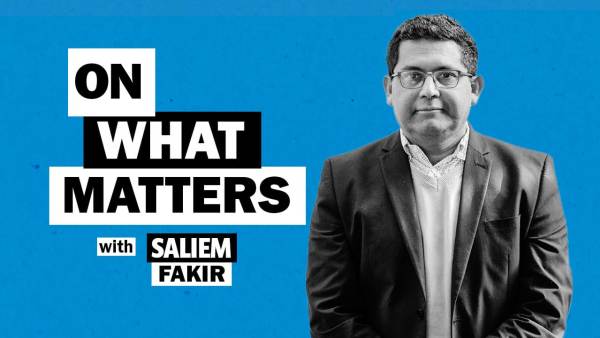
Working Towards a Truly Just Energy Transition with Hilary Pennington and Saliem Fakir
Saliem Fakir, the founder and executive director of the African Climate Foundation, the first grantmaking foundation in Africa focused on furthering solutions for sustainable climate development, joins Hilary Pennington to discuss the urgent need to address climate change and South Africa’s promising Just Energy Transition Partnership.
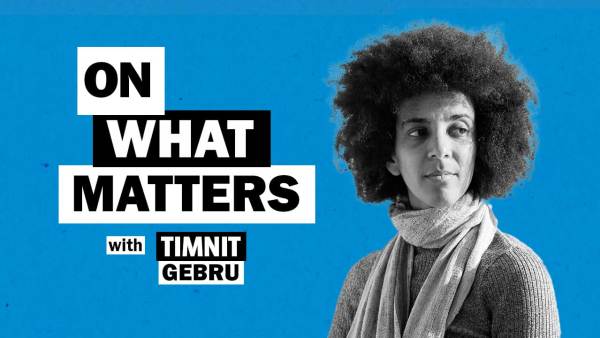
Making AI systems more just with Hilary Pennington and Dr. Timnit Gebru
Dr. Timnit Gebru, founder and executive director of the Distributed Artificial Intelligence Research Institute (DAIR), joins Hilary Pennington to discuss how an inclusive and collaborative approach to creating AI systems can address the uneven benefits and harmful impacts of technology on society.
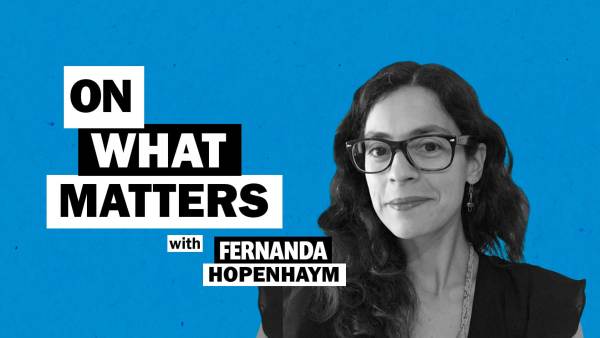
Holding corporations accountable with Hilary Pennington and Fernanda Hopenhaym
Fernanda Hopenhaym is the co-executive director of the Project on Organizing, Development, Education, and Research (PODER), a nonprofit in Latin America that pushes for corporate accountability for human rights and environmental abuses. Fernanda and Hilary discuss how to keep businesses ethical and transparent by using feminist and human rights organizing strategies.
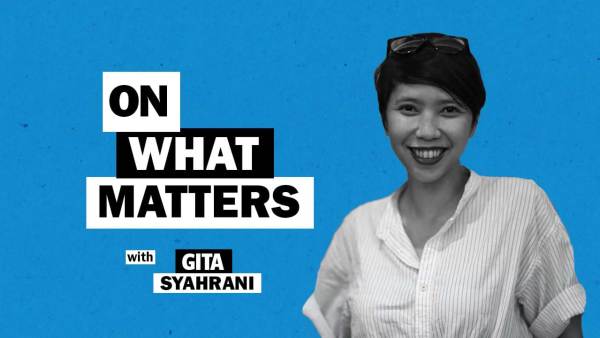
Saving forests while eradicating poverty with Hilary Pennington and Gita Syahrani
Hilary Pennington talks with Gita Syahrani about how engaging Indigenous and local communities in sustainability efforts can lead to greater economic mobility for them. Her work shows how civic engagement at the district level can have global impact.
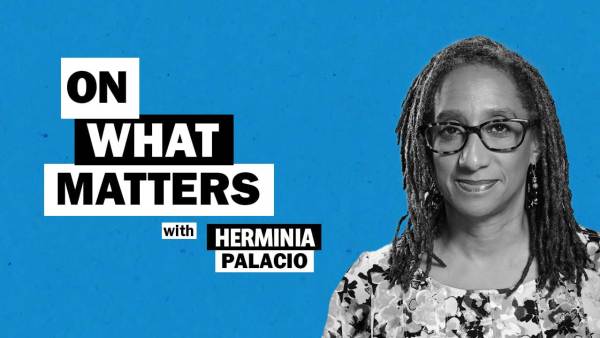
The future of reproductive justice with Hilary Pennington and Dr. Herminia Palacio
Hilary Pennington and Dr. Herminia Palacio discuss this moment in the reproductive justice movement, how different communities are impacted, and what the United States can learn from countries that have won gender and reproductive health victories.
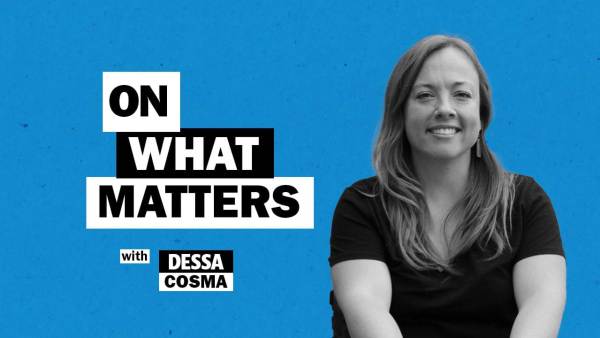
Reimagining how we think about disability with Hilary Pennington and Dessa Cosma
Hilary Pennington talks to Dessa Cosma about disability justice and inclusion. They discuss the importance of using intersectional approaches to activism and how to restructure the economy to be more just for disabled people.
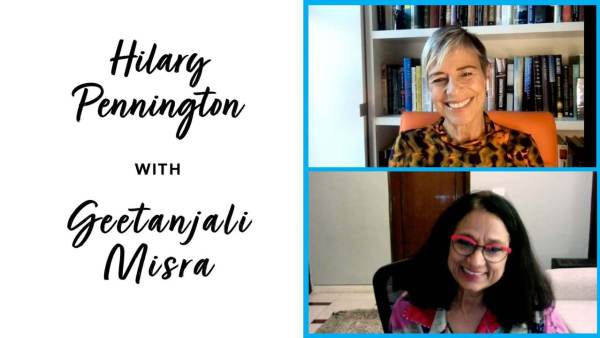
The future of feminism: Hilary Pennington with Geetanjali Misra
Geetanjali Misra has bore witness to the evolution of feminism both on the ground in the U.S. and India and in her work as an activist. Seeing patterns change and movements shift, she speaks about the importance of intersectionality in building a more inclusive feminist future.
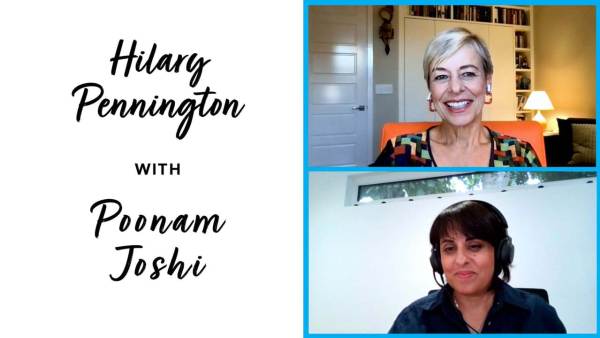
COVID’s impact on civic space: Hilary Pennington with Poonam Joshi
Civic space is essential for democracy. It allows people to participate in society and communicate freely and without discrimination. But, according to Poonam Joshi, director of Funders’ Initiative for Civil Society director, there are threats that need to be addressed before we solidify the civil society we want in the future.
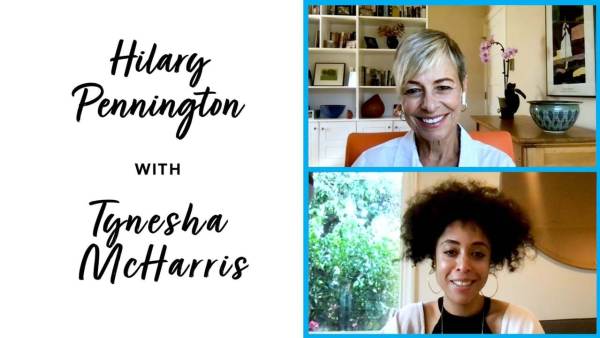
Funding Black feminism: Hilary Pennington with Tynesha McHarris
Black feminist movements are advancing social justice globally. Tynesha Harris, one of the founders of the Black Feminist Fund, aims to channel more support to movement leaders and create a model of true solidarity. Racial, gender, and class injustice need an intersectional approach that acknowledges the inherent value of Black women.

Philanthropy and environmental justice: Hilary Pennington with Laura García
When it comes to climate change, time is running out. But communities all over the world are working on solutions, and philanthropy needs to center their ideas and perspectives to win this fight. Laura Garcia, CEO of GlobalGreen Grants Fund, shares how funding grassroots movements can address challenges at the intersection of social and environmental justice.
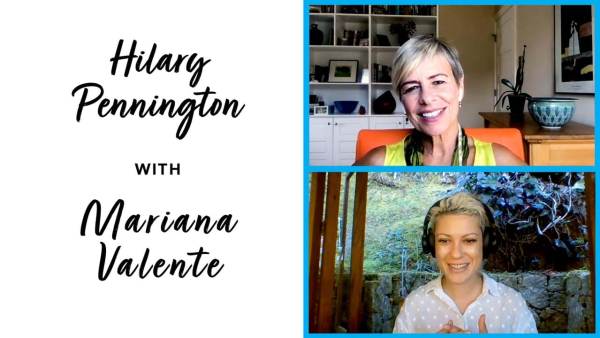
Technology and gender: Hilary Pennington with Mariana Valente
The internet is a force for good, but it must be guided by fundamental human and privacy rights and offer social protection, said InternetLab director Mariana Valente. In this way, technology can advance equality and, with the right policies in place, be used as a tool for advocates to organize.
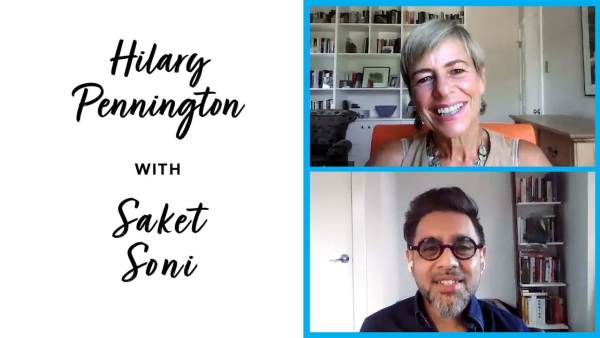
What essential workers need right now: Hilary Pennington with Saket Soni
Disasters present the opportunity to bring us together and give us the chance to reevaluate our priorities and ask what’s really important. Labor organizer Saket Soni sees COVID-19 as a prologue to other threats, like climate change. He says disaster responses need to focus on strengthening essential workers.
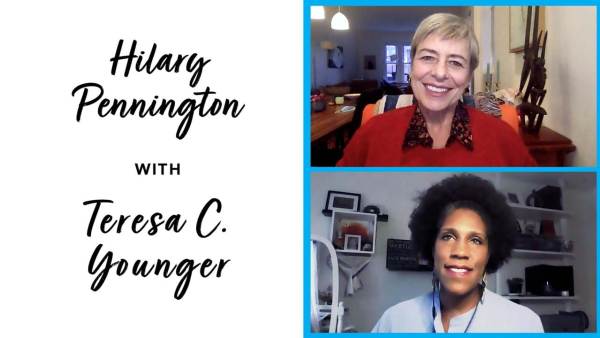
Philanthropy and Black women: Hilary Pennington with Teresa C. Younger
Social justice organizations led by women of color often receive less funding. Teresa C. Younger, CEO of the Ms. Foundation, explains why philanthropy needs to center women of color to address systemic racism and uplift women and girls of color for a more just future.
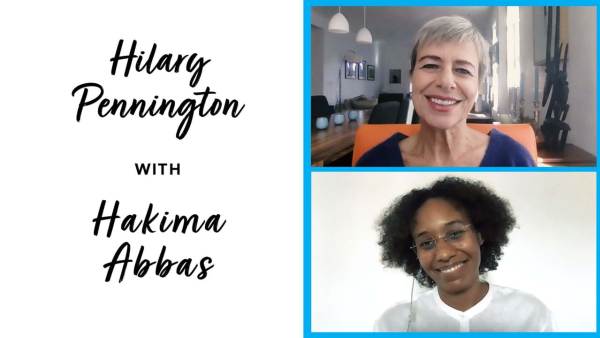
How young feminists are organizing: Hilary Pennington with Hakima Abbas
COVID-19 has impacted the way we work, but it also exacerbated gender inequality in the workplace. Hakima Abbas, of the Association for Women’s Rights in Development, believes we can prevent any further damage by including feminist leaders across the board in devising solutions.
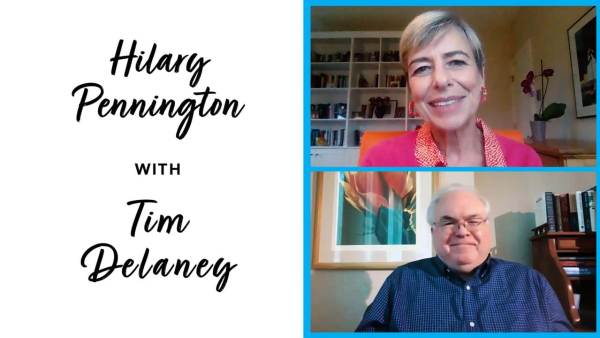
How nonprofits make an impact: Hilary Pennington with Tim Delaney
Over one million nonprofits exist in the United States, but Tim Delaney, the CEO of the National Council of Nonprofits, has an idea to make them even more impactful. To him, bringing social justice groups together can transform philanthropy for the benefit of all.
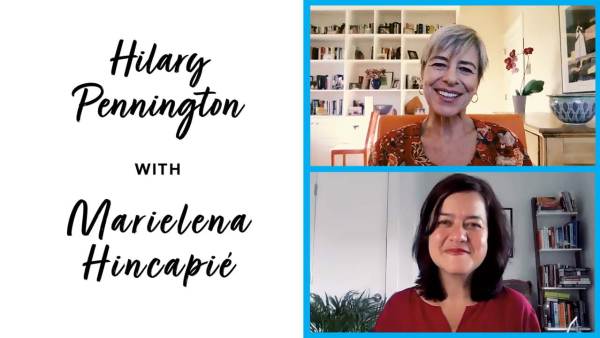
Immigrants are essential: Hilary Pennington with Marielena Hincapié
Immigration has been used as a weapon to divide the United States. The National Immigration Law Center aims to help the country understand that immigrants are not only important members of our communities and essential workers, but they are also valuable political constituencies needed to make American democracy work.
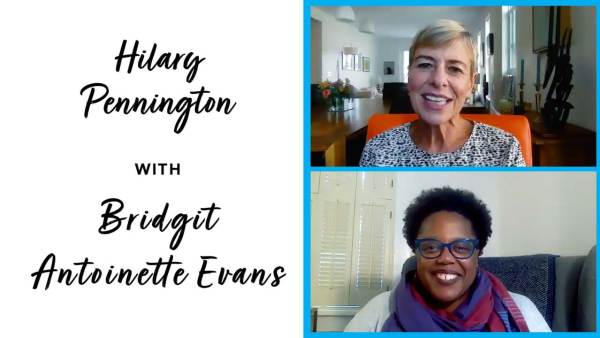
Social justice and pop culture: Hilary Pennington with Bridgit Antoinette Evans
Pop culture plays an important role in advancing social justice. Bridgit Evans of Pop Culture Collaborative produces cultural strategies that build on points of connection to ensure policy changes are not just symbolic. By finding commonalities through culture, she believes we can create a world where everyone feels they belong.
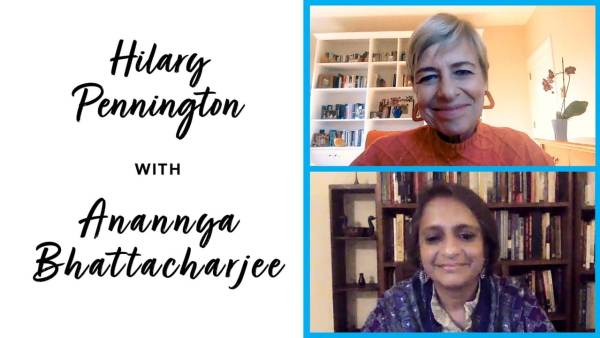
Global work needs to be local: Hilary Pennington with Anannya Bhattacharjee
While the labor movement has worked to improve the lives of garment factory workers globally, activist Anannya Bhattacharjee advocates that solutions need to start locally and come from the ground up to have a significant impact on workers’ lives.
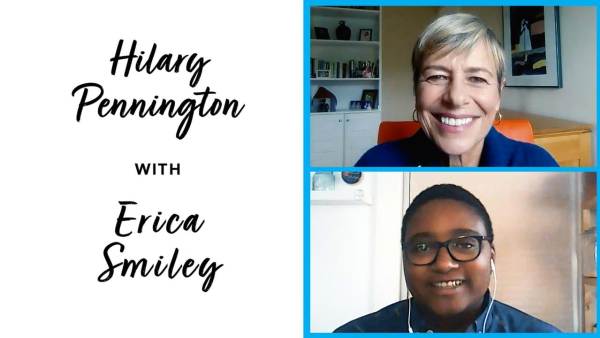
Essential workers are the economy: Hilary Pennington with Erica Smiley
The COVID-19 pandemic has dramatically changed the way we as a world work. As we face this inflection point, Erica Smiley, executive director of Jobs With Justice, believes people—especially essential workers—need to have the right to come together collectively to organize and negotiate their conditions to build a global economy that works for all.

The urgency of this social moment: Hilary Pennington with Eric Ward
We need to dismantle racism to make inclusive democracy truly possible. Eric Ward of Western States Center believes smaller movements can help support bigger waves of change. From creating cohorts of emerging leaders to encouraging small group interactions can help protect democracy and put an end to white supremacy.